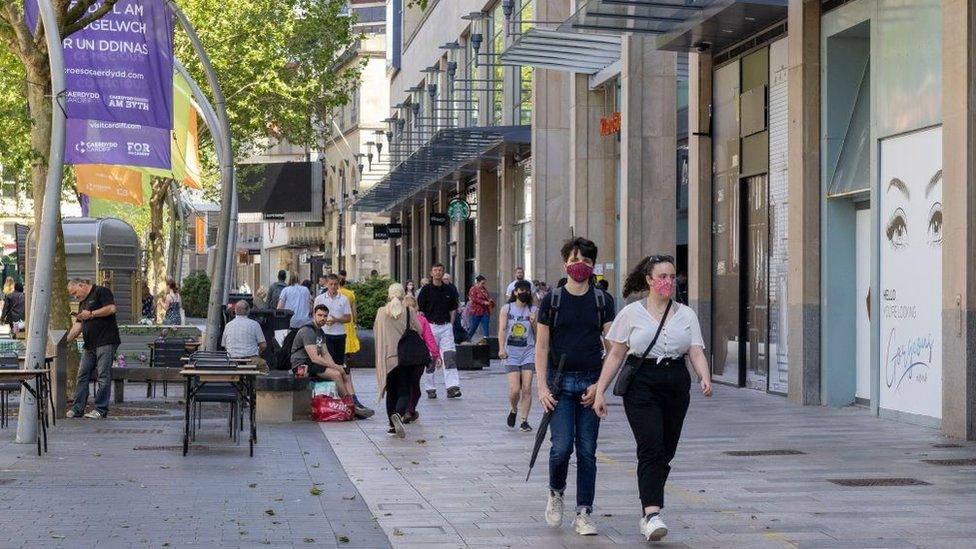Decline in Welsh shoppers due to Covid prompts plea for support
- Published
Visitors to shops in Wales were down 20% in December compared to pre-pandemic levels
The number of people visiting shops in Wales dropped by a fifth in December compared to pre-pandemic levels.
Figures compiled for the Welsh Retail Consortium (WRC) showed footfall decreased by 20.1% in December compared with the same period in 2019.
The WRC called it an "unnerving" start to the year and asked for greater government support for retailers.
The Welsh government said financial support is available and it will consider whether or not more is needed.
The overall figures for Wales was worse than the average UK decline of 18.6% over the same period.
A breakdown of the figures showed Cardiff experienced a decline of 15.9% in shoppers, while visits to shopping centres across Wales dropped by an average of 38.5%.
Head of the Welsh Retail Consortium, Sara Jones said: "Shopper footfall in Wales plummeted further last month, during what would traditionally be the busiest time of the year, as government advice to work from home and socialise less coupled with the reintroduction of physical distancing in stores exerted its toll.
"Visits to shops in December were down a fifth on the comparable period prior to the pandemic, plunging for a second successive month, December saw the weakest monthly figures for store visits since July, and the deterioration was seen across all retail destinations."
'Empty shops'
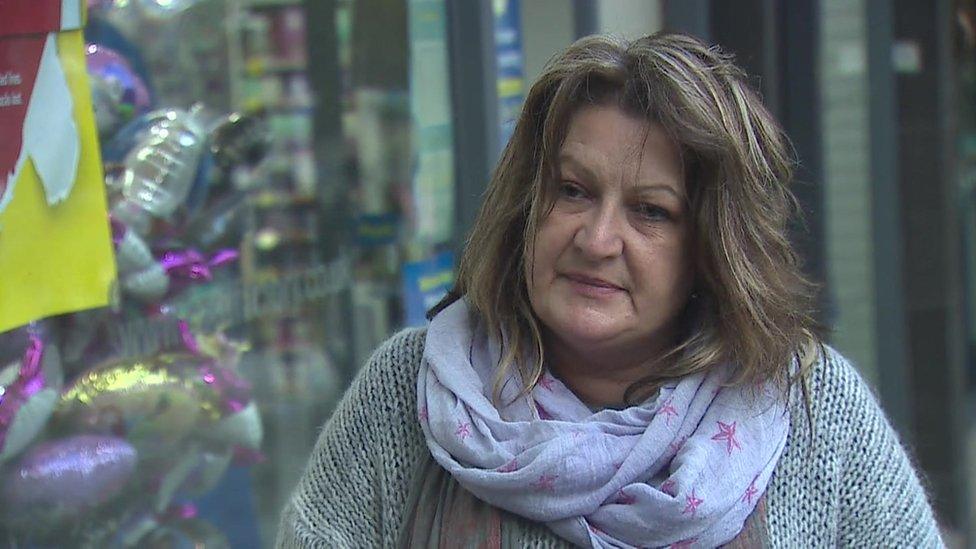
Kerry Massey says business in Bangor is down, with empty shops and nothing to bring people to the city.
In Bangor businesses noticed a drop in trade in the run-up to Christmas.
Kerry Massey runs a business in Bangor's Deiniol Shopping Centre and says she's seen a real decline in shoppers visiting the city.
"Business is definitely down. Christmas wasn't what it used to be, it is down, we need more in this town - we have got empty shops, there is nothing to bring people here."
She thinks the decline in Bangor's shopping is fuelled by shop closures rather than the pandemic, adding: "Bangor has been so empty for a while. If you look at the shops, all the big chain stores have gone."
'Unnerving'
Ms Jones added that this rounded off a profoundly worrying "golden quarter" for Welsh shopkeepers, many of whom traditionally need strong pre-Christmas trading to tide them over the fallow late-winter months.
"It heralds an unnerving start to the new year for many retailers.
"Welsh Ministers must stand ready to support the retail industry further if these conditions are set to persist, for example, by removing the cap on the business rates relief announced in the Welsh Budget, or through a high street stimulus scheme like Northern Ireland has implemented," she said.

Richard said lockdowns have helped his online business thrive
The former market town of Cowbridge in the Vale of Glamorgan has a vibrant selection of independent shops on its high street.
Most have survived the worst of the pandemic, but they have also had to adapt to difficult conditions.
Richard Ballantyne, who owns wine merchant Noble Grape, said the online side of his business had benefited from lockdowns and now accounted for a third of sales since opening five years ago.
"Hopefully we keep on growing, the real surge in my business took place between April and July of 2020 which was obviously the first lockdown, that was when my business began to surge.
"So lockdowns have been good for us, but it has also sustained us," he said.
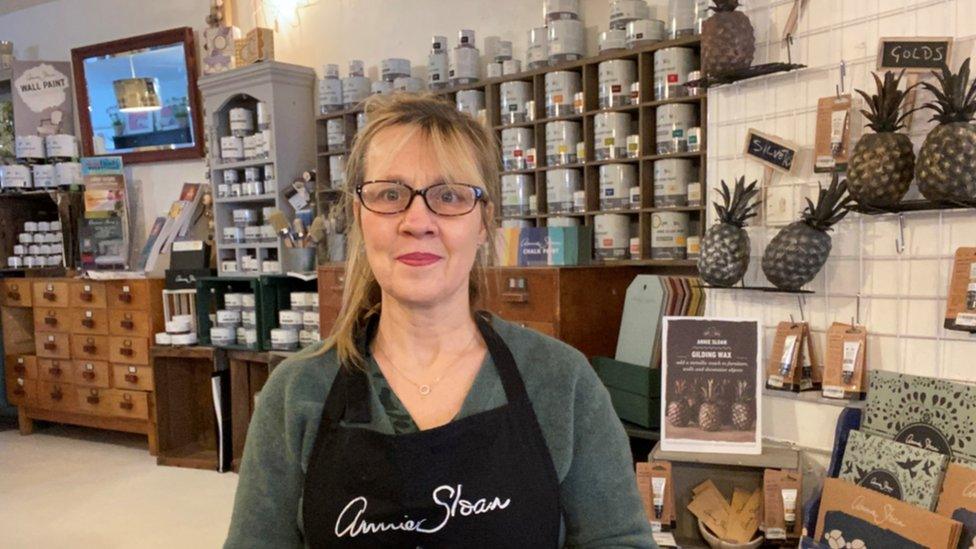
Lucy Hywel feels that they are getting to a stage that if Welsh government introduce further restrictions she doesn’t think anyone will follow them
Owner of That's Lovely That in Abergavenny and secretary of Y Fenni Business Community, Lucy Hywel said: "Christmas was good business wise but it's not what it has been in the past, we've seen a drop in business but not a dramatic drop.
"At the moment we're constantly draining ourselves because we're always thinking about having to plan ahead if any changes are made.
'Measures impacting businesses'
A Welsh government spokesperson said: "As a result of the rapidly spreading Omicron variant, Wales is currently at alert level two, this means the majority of businesses are currently open and able to trade, but we appreciate the measures in place to protect the public and staff are having an impact on businesses.
"Our £120m package of emergency financial support covers impacted businesses for the period from 13 December 2021 to 14 February 2022. Businesses eligible for non-domestic rates-based payments need to register with their local authority from 13 January, and will start receiving payments shortly afterwards, systems are being established as quickly as possible to enable this. The application window for the Economic Resilience Fund will open during the week starting 17 January with payments reaching businesses within days.
"The Cabinet is reviewing the situation on a weekly basis and will continue to consider whether additional emergency business support funding is needed. On top of this for 2022-23, the Finance Minister, in the recent budget confirmed an additional £116m package of non-domestic rates relief for businesses in sectors hardest hit, which means retail, leisure and hospitality businesses will receive 50% non-domestic rates relief."

THE MUSICAL LIFE OF: Stories of the greatest ever Welsh people through song
BRAVO TWO CHARLIES : Police officers just trying to get the job done. And, broadly, failing

- Published26 December 2021
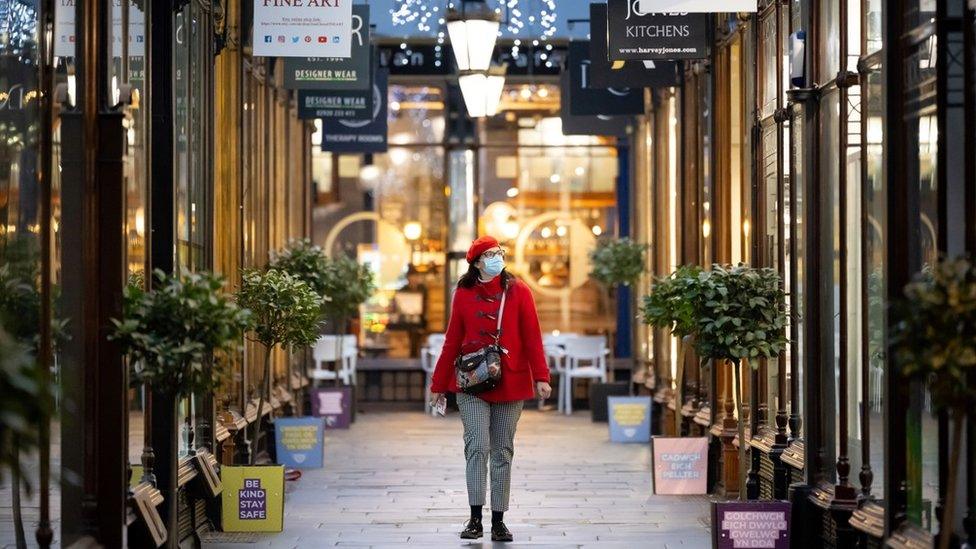
- Published20 December 2021

- Published20 December 2021

- Published19 December 2021
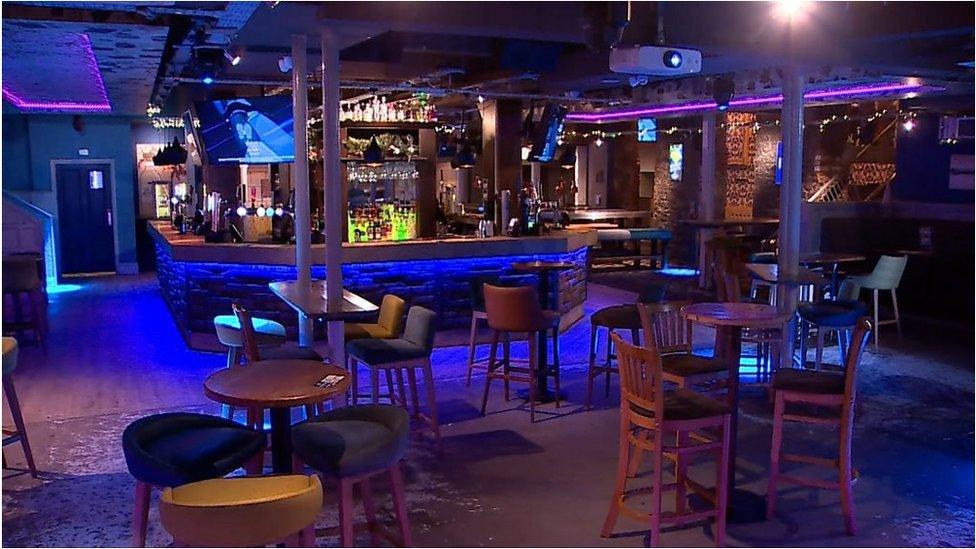
- Published5 June 2021
